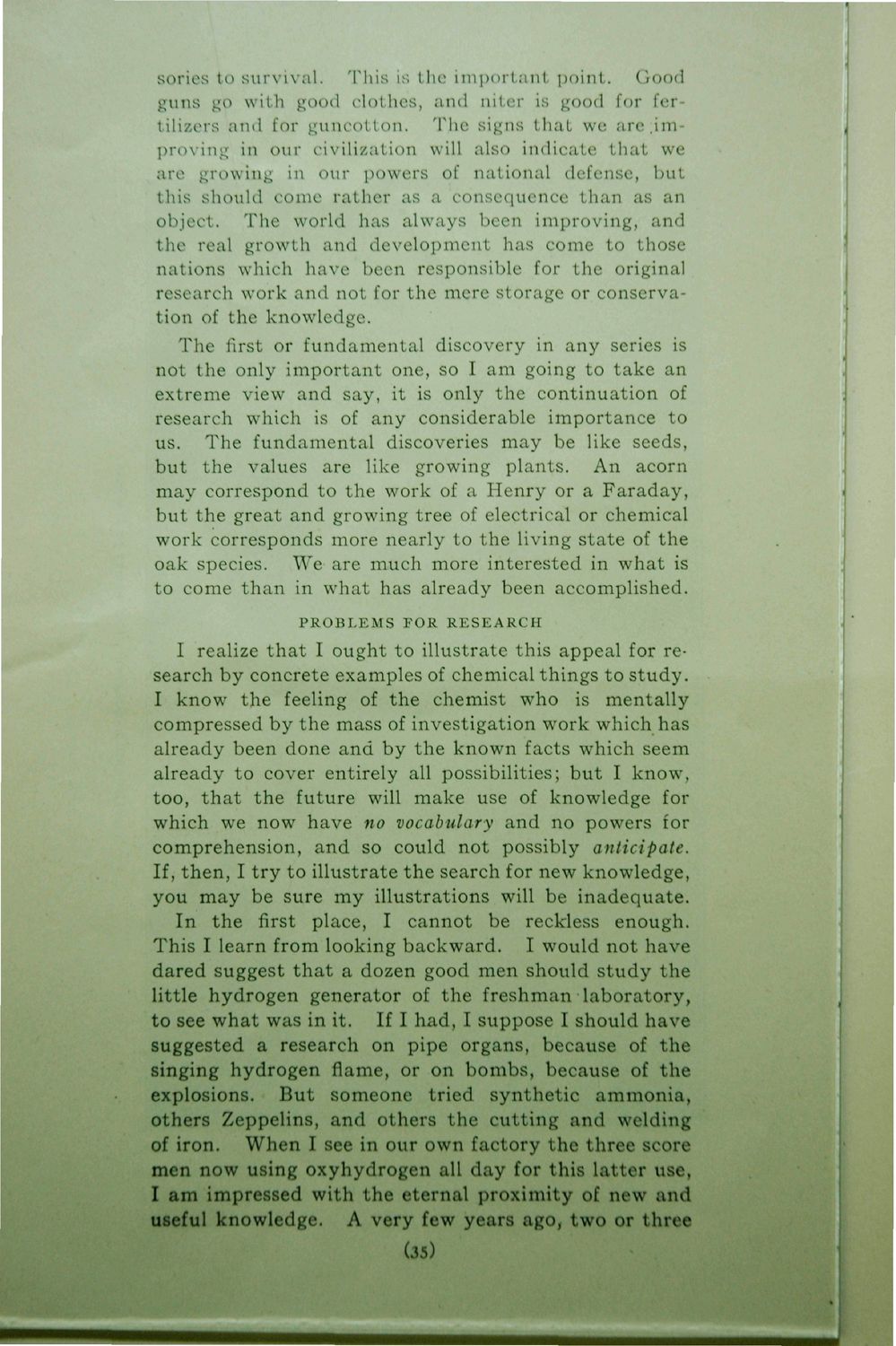| |
| |
Caption: Dedication - New Chemistry Building
This is a reduced-resolution page image for fast online browsing.

EXTRACTED TEXT FROM PAGE:
sories to survival. This is the important point. Good guns go with good clothes, and niter is good for fertilizers and for guncotton. The signs that we are improving in our civilization will also indicate that we are growing in our powers of national defense, but this should come rather as a consequence than as an object. The world has always been improving, and the real growth and development has come to those nations which have been responsible for the original research work and not for the mere storage or conservation of the knowledge. The first or fundamental discovery in any series is not the only important one, so I am going to take an extreme view and say, it is only the continuation of research which is of any considerable importance to us. The fundamental discoveries may be like seeds, but the values are like growing plants. An acorn may correspond to the work of a Henry or a Faraday, but the great and growing tree of electrical or chemical work corresponds more nearly to the living state of the oak species. We are much more interested in what is to come than in what has already been accomplished. PROBLEMS FOR RESEARCH I realize that I ought to illustrate this appeal for research by concrete examples of chemical things to study. I know the feeling of the chemist who is mentally compressed by the mass of investigation work which has already been done and by the known facts which seem already to cover entirely all possibilities; but I know, too, that the future will make use of knowledge for which we now have no vocabulary and no powers for comprehension, and so could not possibly anticipate. If, then, I try to illustrate the search for new knowledge, you may be sure my illustrations will be inadequate. In the first place, I cannot be reckless enough. This I learn from looking backward. I would not have dared suggest that a dozen good men should study the little hydrogen generator of the freshman laboratory, to see what was in it. If I had, I suppose I should have suggested a research on pipe organs, because of the singing hydrogen flame, or on bombs, because of the explosions. But someone tried synthetic ammonia, others Zeppelins, and others the cutting and welding of iron. When I see in our own factory the three score men now using oxyhydrogen all day for this latter use, I am impressed with the eternal proximity of new and useful knowledge. A very few years ago, two or three (35)
| |